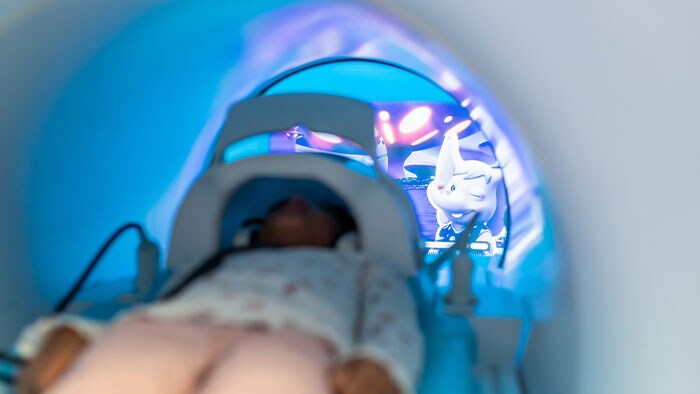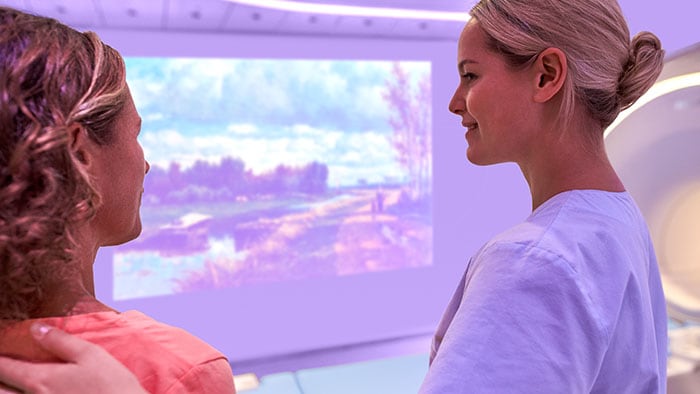Solutions that engage to ease pediatric anxiety
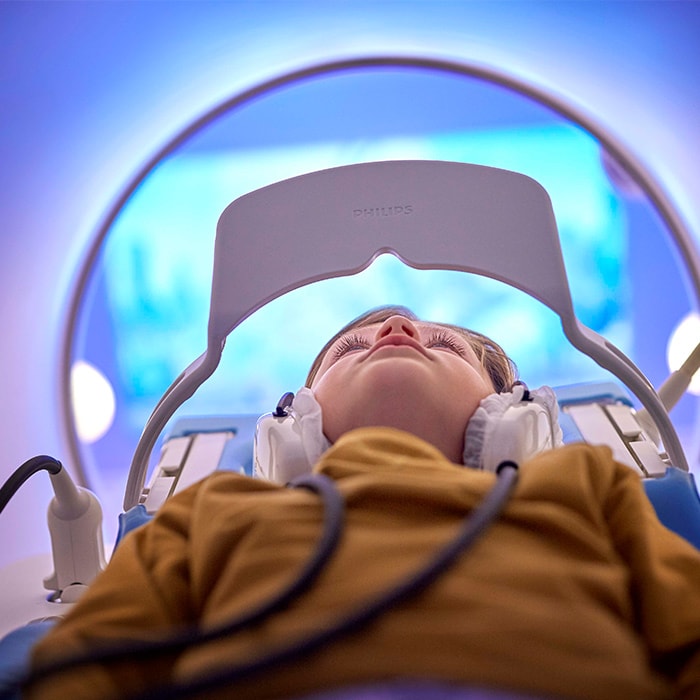
Helps improve the pediatric imaging experience: reducing healthcare-induced trauma
Enhancing the imaging experience for pediatric patients can help reduce the need for sedation.1 Putting children at ease by using preparation and active relaxation techniques support a positive patient outcome. Reduced anxiety and stress can lead to better compliance, smoother workflows, and faster patient throughput. Most importantly, it aims to empower children with a positive healthcare experience.
Philips Ambient Experience solutions have been designed with the pediatric imaging patient journey in mind.
A cohesive use of lighting, visual themes, and music provides positive distraction from intimidating medical devices. This helps the child hold still longer and encourages a reduction in the use of general anesthesia (they may be scanned while awake). It also may lower the risk of healthcare-induced trauma by providing a positive experience to both the child and parents/caregivers – as research has shown in pediatric MR imaging settings.2
We’ve achieved something fantastic here. It is better than we anticipated and more effective than we anticipated. Children are more cooperative and we get the scan we need. ''
Dr. Susan Morris, Pediatric Radiologist
University Hospital of Wales, Cardiff & Vale NHS Trust
Leveraging the power of positive distraction
Feelings of anxiety and apprehension are common among young patients. Stress reduction techniques in pediatric imaging benefits both patients and staff. When the pediatric care environment evokes a sense of tranquility, children may follow directions more closely, and procedures flow more smoothly.
Ambient Experience allows children (or staff) to personalize a multisensorial room by selecting a room theme or by connecting their own devices for personal audio and video content. Upon selection, the room transforms and engages the child in a comforting experience.
Positive distraction can help a child feel more confident and in control. They are more at ease, which improves the chances of a successful procedure and may reduce the need for sedation. In fact, a children-centered-care study in Denmark, where the Philips 'Kitten Scanner' and Ambient Experience with In-bore Connect were employed, reported that the use of general anesthetics for MRI in children aged 4–6 was reduced from 57% to 5%.1
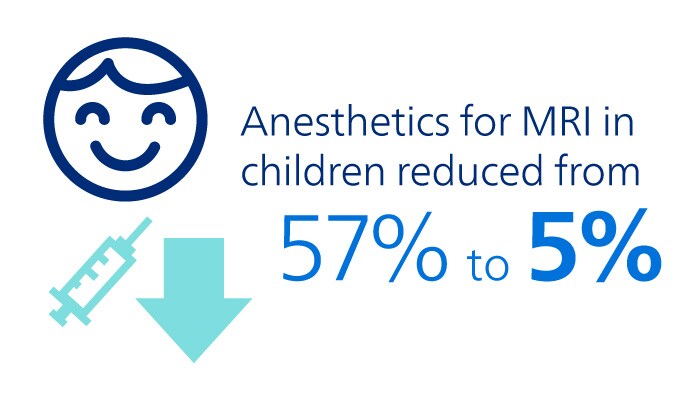
The pediatric imaging experience – case studies
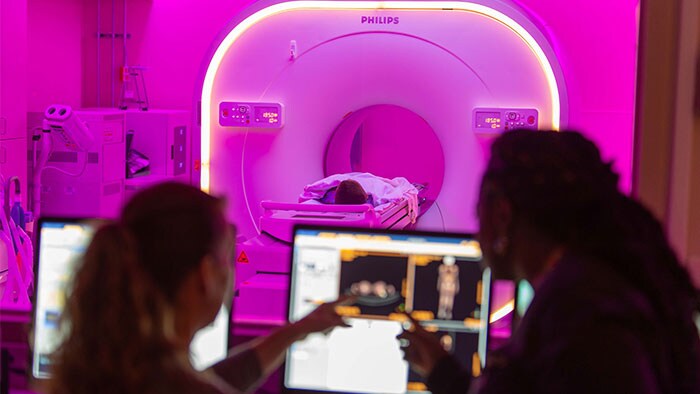
Meeting the complex needs of pediatric healthcare at Phoenix Children’s Hospital
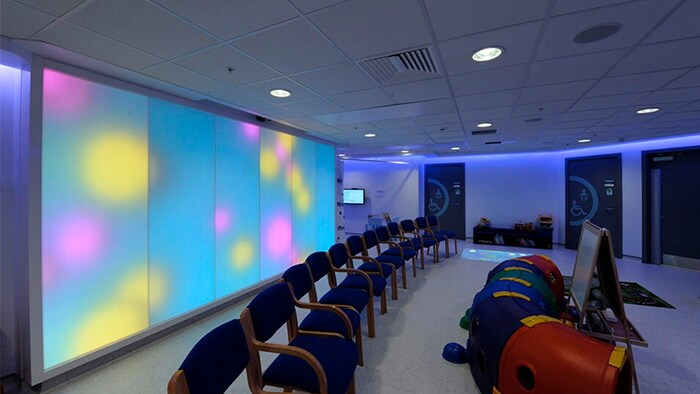
Helping improve the experience for families at Noah’s Ark Children’s Hospital
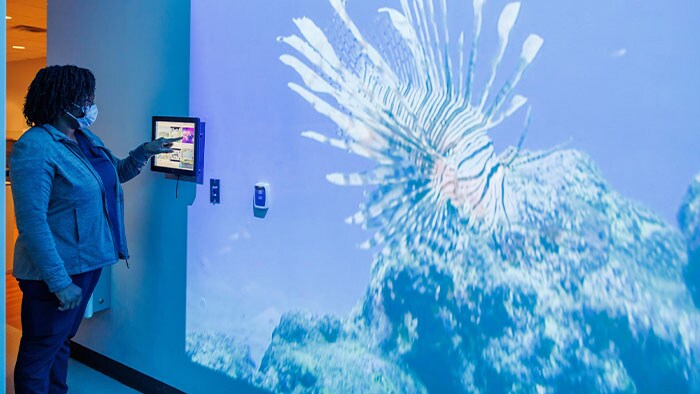
Creating a calming and engaging X-ray environment for Children’s Alabama
Want to connect with us? Complete the form below and we will follow-up.
Pediatric Coaching
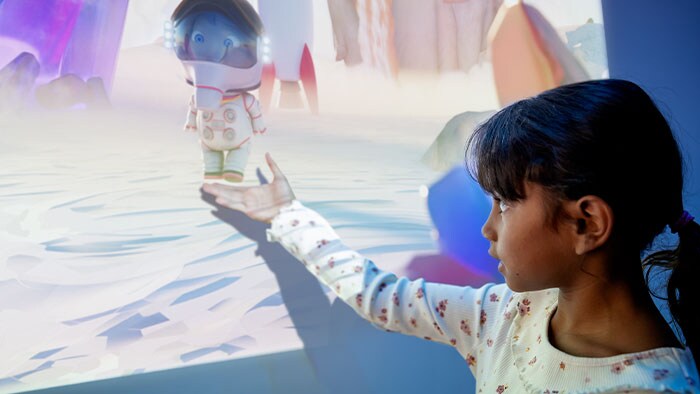
Putting patients at ease with an MRI scan is the concept behind the Philips Pediatric Coaching solution. This solution brings together the Scan Buddy mobile app, Kitten Scanner, and MR In-bore Connect for a comprehensive approach to the pediatric imaging experience.
Through play-based activities, Pediatric Coaching can help reduce stress in young children (aged 4+). Augmented reality educational techniques engage the child and allow them to explore all aspects of the scan journey. Playful scan buddies lead the way.
Using gamification and ‘buddy system’ techniques to prepare children and their parents beforehand, the solution helps guide young children through the MRI procedure to significantly enhance the patient experience.
Pediatric Coaching is the latest initiative launched within the Philips Ambient Experience portfolio, featuring a wide range of dedicated solutions to help enhance the experience of patient and staff.
Ambient Experience themes to put pediatric patients at ease
Elements of the Pediatric Coaching solution
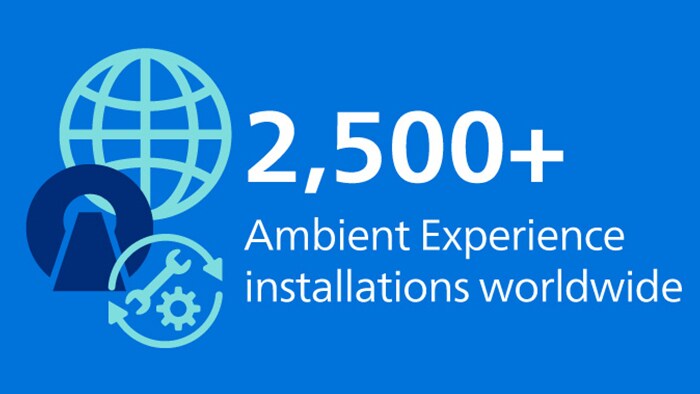
In seeking to explore strategies for patient cooperation and sedation reduction in pediatric medical imaging, Philips has created a patient experience solution that works.
Over 2,500 worldwide installations demonstrate its efficacy.
Patient experience
Enhancing the patient experience can help improve efficiency as well as patient and staff satisfaction.
Ambient Experience solution
Discover the science behind this successful concept. Philips brings together experts from many design disciplines to create a comfortable, relaxing care environment.
1 Runge SB, et al. Children centered care: Minimizing the need for anesthesia with a multifaceted concept for MRI in children aged 4–6. European Journal of Radiology. 2018;107:183–187
2 Lerwick, J. L. (2016). Minimizing pediatric healthcare-induced anxiety and trauma. World Journal of Clinical Pediatrics, 5(2), 143-150.
* Apple is a trademark of Apple Inc.
** Android is a trademark of Google LLC.
